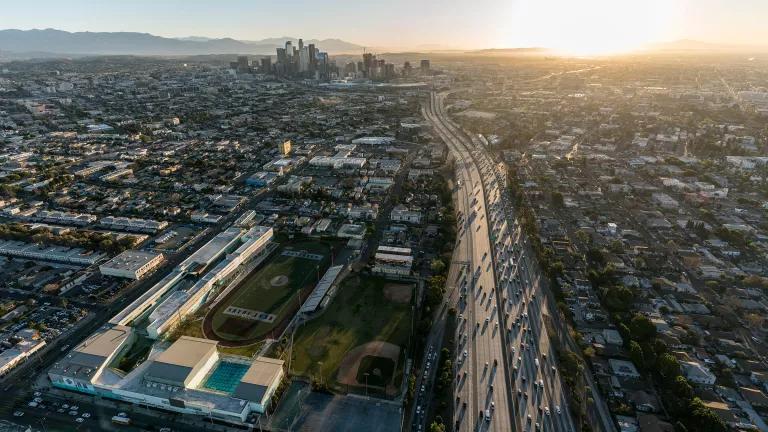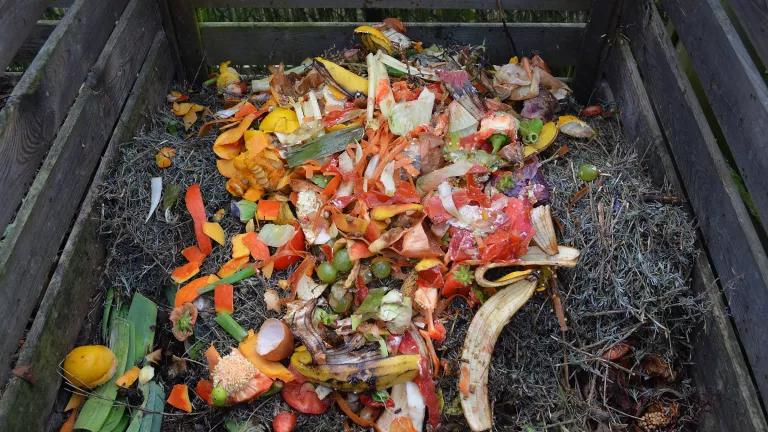New Poll: Americans Decry Wrong Infrastructure Investment

President Trump often brings up infrastructure in the brief on-the-record encounters he has with the press, and he repeats the theme that passing an infrastructure plan should be the easier of his initiatives, predicting bipartisan support on Capitol Hill. Americans say they support infrastructure spending but a new NRDC-sponsored poll shows they oppose many parts of his budget plan regarding his approach to infrastructure.
“I want a very big infrastructure bill, where we’re working on that very hard already,” Trump told reporters last week. “And we can do that. And we may even get bipartisan on infrastructure, but we want to have it.”
But, as with healthcare, while the concept is easy to embrace, there are a lot of competing agendas when it comes to where to spend money on infrastructure, how to define and prioritize projects and who exactly is going to pay for what parts of new construction, rebuilding and maintenance.
According to most accounts, Trump’s initial pledge for a $1 trillion plan has morphed into just $200 billion in new federal spending, with the money coming from accounting tricks, tax incentives and a reliance on private investment that may not materialize or could prove harmful to communities and taxpayers through tolls, user fees and/or neglect of underserved neighborhoods. New evaluations say the bottom line is an actual zero increase in overall infrastructure spending.
In the meantime, spending on infrastructure at the local level is languishing in anticipation of a plan, with public works investments hovering below 2007 levels in most states, and infrastructure, itself, is under increased strain—with governors and local officials just hoping to avoid the next potentially dangerous failure.
We’ve made the case that infrastructure is an environmental issue, and one that we’ve made a priority in our work nationally. The idea is that infrastructure built with an emphasis on people and the environment can not only improve transportation, create better access to power and energy, increase economic mobility, and bring us into the 21st century but also make our communities more resilient to climate change, support fair-wage jobs, improve health, and help address income disparity, systemic racial segregation, and poverty.
We have a set of key principles to back up these ideas, and now, a new poll shows that most Americans agree with our conclusions that we need more federal infrastructure investment in general, more support for low-income communities that are disproportionately affected by harsh storms and weather extremes, and we need to protect our environment from pollution from cars through funding for public transportation.
American Viewpoint's polling—a national survey of likely 2018 voters and commissioned by NRDC—shows strong resistance to cuts in the proposed budget related to the environment, with 60 percent of respondents opposing reductions in public investment in infrastructure and 59 percent opposing reducing federal funding for commuter rail and rapid transit lines.
In addition, President Trump’s budget outline establishes incentives for state and local governments to sell assets like airports, bridges and highways to private companies, but again, those polled said they agree with our principle that public money should only be spent for public good, opposing such privatization by 46 percent, as opposed to 19 percent in favor.
At the same time, 61 percent opposed reducing funding for programs that focus on eliminating pollution in low-income and minority communities, including for clean drinking water.

These results align with a poll conducted by the Strong, Prosperous and Resilient Communities Challenge in the spring showing wide agreement that divisive policies that hurt poor communities do more to keep people impoverished than lack of personal responsibility in those communities. What’s more, nine in 10 in that poll said they support using public funds to invest in projects, from expanded access to health services and public transit to preparing for extreme weather events and updating housing policies, to help people lift themselves out of poverty.
It’s clear that the majority of Americans hunger for more investment in people and the environment to build a strong undergirding—literally, in the form of infrastructure and the built environment—for the future of the country.
For more information on the latest poll, see our press release, including a statement by our president, Rhea Suh, a summary memo, slide deck and blog by Pete Altman, director of federal campaigns.



